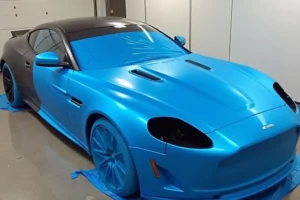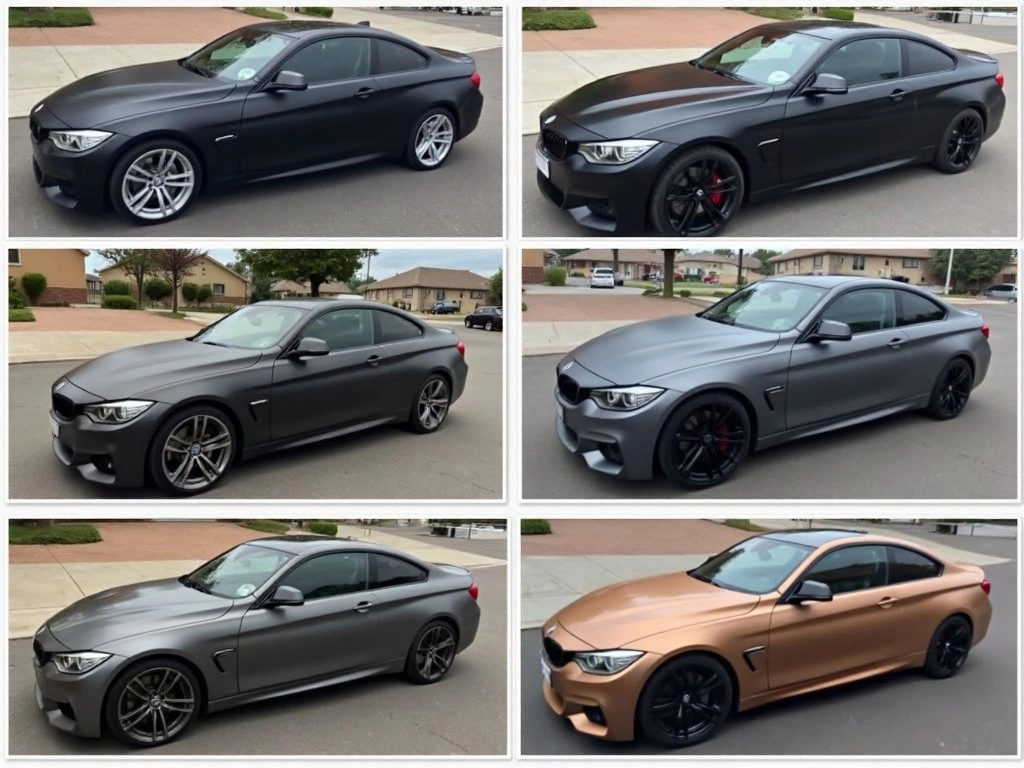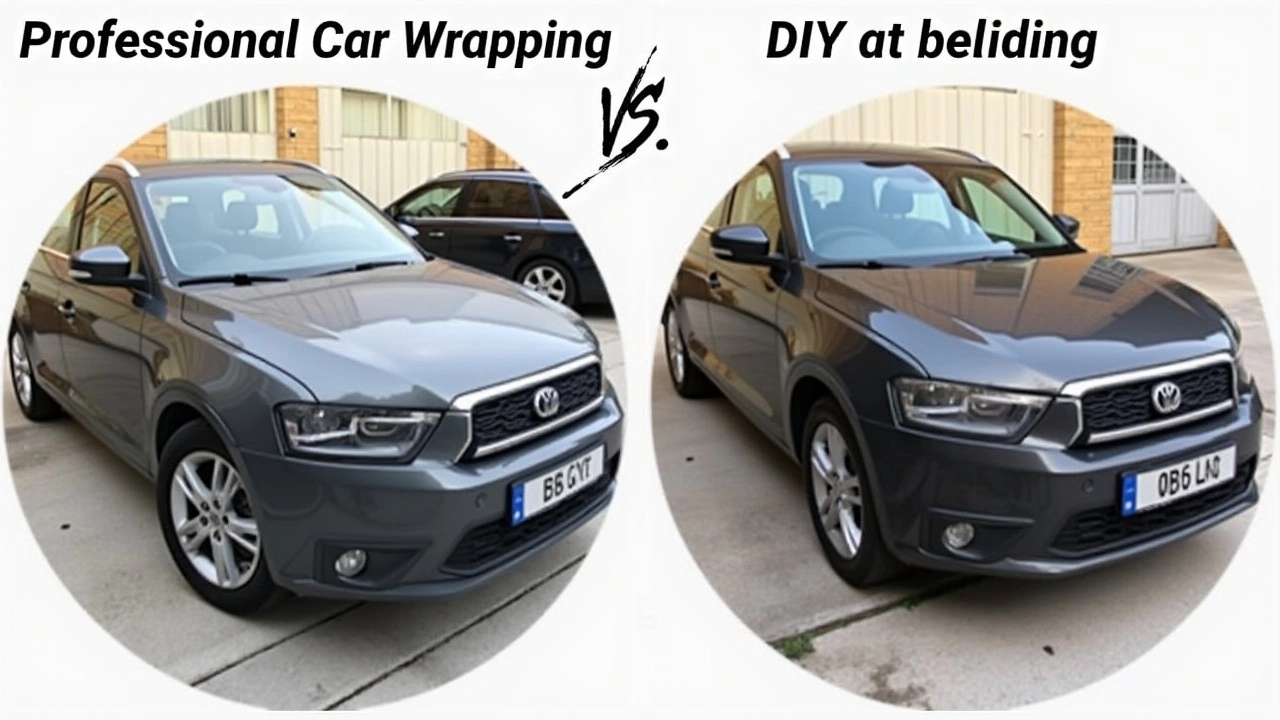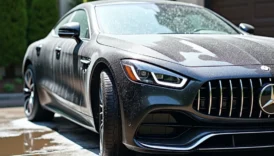How Much is it to Wrap a Car? The Ultimate Guide to Vehicle Wrapping

Ever wondered how much is it to wrap a car? You’re not alone. Car wrapping has become increasingly popular in recent years, offering a way to transform your ride without the permanence of a paint job. But just like any vehicle modification, the cost can vary wildly depending on several factors. In this comprehensive guide, we’ll break down everything you need to know about car wrap pricing, from the basics to the nitty-gritty details that can affect your bottom line.
- How Much is it to Wrap a Car? The Ultimate Guide to Vehicle Wrapping
- What Exactly Is a Car Wrap?
- The Average Cost of Wrapping a Car
- Factors That Influence Car Wrap Pricing
- Vehicle Size and Shape
- Wrap Quality and Type
- Design Complexity
- Installation Difficulty
- Installer Expertise
- Breaking Down the Costs: What You're Really Paying For
- Materials
- Labor
- Design Work
- Prep Work
- Extras and Add-ons
- DIY vs. Professional Installation: Weighing the Costs
- DIY Car Wrapping
- Professional Installation
- Comparing Car Wraps to Other Vehicle Customization Options
- Tips for Getting the Best Value When Wrapping Your Car
- Shop Around
- Consider Partial Wraps
- Choose Your Material Wisely
- Prepare Your Car
- Timing Matters
- The Long-Term Value of Car Wraps
- Paint Protection
- Resale Value
- Advertising Potential
- Flexibility
- Common Mistakes to Avoid When Budgeting for a Car Wrap
- Underestimating Additional Costs
- Choosing Price Over Quality
- Ignoring Maintenance Costs
- Forgetting About Removal
- The Future of Car Wrapping: Trends and Innovations
- Advanced Materials
- Digital Printing Advancements
- Eco-Friendly Options
- Smart Wraps
- Sources
- Frequently Asked Questions
- How long does a car wrap typically last?
- Can I wash my wrapped car?
- Will wrapping my car void its warranty?
- Can I remove the wrap myself?
- Is it cheaper to wrap or paint a car?
So, buckle up and get ready to dive into the world of vehicle wraps. Whether you’re looking to protect your car’s original paint, make a bold statement, or simply change things up, understanding the costs involved is crucial. Let’s peel back the layers (pun intended) and explore what goes into determining the price of a car wrap.

What Exactly Is a Car Wrap?
Before we get into the dollars and cents, let’s clarify what we’re talking about. A car wrap is essentially a large vinyl decal or series of decals that’s applied directly to your vehicle’s paint. It’s like giving your car a second skin – one that can be removed later without damaging the original paint job underneath.
Car wraps come in a variety of colors, finishes, and even textures. From glossy and matte solids to chrome, carbon fiber, and even color-changing options, the possibilities are nearly endless. This versatility is one of the main reasons why car wraps have become so popular among car enthusiasts and businesses alike.
The Average Cost of Wrapping a Car
Now, let’s get to the meat of the matter – how much is it to wrap a car? On average, you can expect to pay anywhere from $2,000 to $5,000 for a full car wrap. However, this is just a ballpark figure, and the actual cost can vary significantly based on several factors.
Here’s a quick breakdown of average costs for different types of wraps:
- Partial Wrap: $500 – $2,000
- Full Wrap (Standard): $2,000 – $4,000
- Full Wrap (Premium): $4,000 – $10,000+
Remember, these are just averages. Your actual cost could be higher or lower depending on various factors, which we’ll explore in detail next.
Factors That Influence Car Wrap Pricing
When it comes to determining how much it is to wrap a car, several key factors come into play. Understanding these can help you better estimate the cost for your specific situation.
Vehicle Size and Shape
It’s probably no surprise that larger vehicles generally cost more to wrap. More surface area means more vinyl material and more labor time. But it’s not just about size – the shape of your vehicle matters too. Cars with lots of curves, contours, and complex shapes (think sports cars) can be more challenging and time-consuming to wrap, which can drive up the cost.
Wrap Quality and Type
Just like with most things in life, you get what you pay for when it comes to car wraps. Higher quality vinyl will cost more but will also last longer and look better. Here’s a general breakdown of wrap types and their relative costs:
| Wrap Type | Relative Cost |
|---|---|
| Standard Solid Color | $ |
| Metallic or Pearl | $$ |
| Color Shifting | $$$ |
| Chrome | $$$$ |
Design Complexity
If you’re going for a simple, solid color wrap, you’ll likely pay less than if you want a complex, custom design. Intricate patterns, multiple colors, and custom graphics all add to the cost. Some shops charge extra for design work, while others include it in their overall pricing.
Installation Difficulty
The complexity of the installation process can significantly impact the cost. Factors that can make installation more difficult (and thus more expensive) include:
- Removing existing vinyl or decals
- Dealing with rust or damage to the original paint
- Wrapping around complex body kits or aftermarket modifications
- Disassembling and reassembling parts of the vehicle
Installer Expertise
Like any skilled trade, experience and expertise come at a premium. Highly skilled installers with years of experience and a portfolio of high-quality work will generally charge more than less experienced installers. However, paying more for a skilled professional can often result in a better final product and potentially save you money in the long run by avoiding costly mistakes.
Breaking Down the Costs: What You’re Really Paying For
When you’re trying to figure out how much it is to wrap a car, it’s helpful to understand what components make up that final price tag. Here’s a breakdown of what you’re typically paying for when you get your car wrapped:
Materials
The vinyl wrap itself is a significant portion of the cost. High-quality vinyl from reputable manufacturers like 3M or Avery Dennison can cost anywhere from $1 to $3 per square foot. For a full car wrap, you might need 50 to 300 square feet of vinyl, depending on the size of your vehicle.
Labor
Installation is a labor-intensive process that requires skill and patience. Expect to pay for several hours of work, typically ranging from 2-3 days for a full wrap. Labor costs can vary widely depending on the installer’s experience and location.
Design Work
If you’re opting for a custom design rather than a solid color, you may need to pay for design services. Some shops include this in their overall price, while others charge separately.
Prep Work
Before the wrap can be applied, your car needs to be thoroughly cleaned and prepped. This might include clay bar treatment, fixing minor paint imperfections, and removing any existing decals or wraps.
Extras and Add-ons
Additional services like ceramic coating for added protection, wrapping interior elements, or including special effects (like reflective elements) will add to the total cost.
DIY vs. Professional Installation: Weighing the Costs
When considering how much is it to wrap a car, you might be tempted to save some cash by doing it yourself. While DIY car wrapping is possible, it’s important to weigh the pros and cons carefully.
DIY Car Wrapping
Pros:
- Potentially lower cost (materials only)
- Sense of accomplishment
- Full control over the process
Cons:
- Time-consuming (can take days or weeks for novices)
- Steep learning curve
- Risk of mistakes and wasted materials
- May void vinyl manufacturer warranty
Professional Installation
Pros:
- High-quality, professional results
- Faster turnaround time
- Warranty on installation
- Access to professional-grade tools and materials
Cons:
- Higher upfront cost
- Less control over the process
For most people, the benefits of professional installation outweigh the potential cost savings of DIY. Unless you have experience with vinyl application or are willing to invest significant time in learning and practicing, professional installation is usually the way to go.

Comparing Car Wraps to Other Vehicle Customization Options
When you’re trying to decide how much to invest in wrapping your car, it’s worth considering how the cost stacks up against other customization options. Here’s a quick comparison:
| Customization Option | Average Cost | Pros | Cons |
|---|---|---|---|
| Car Wrap | $2,000 – $5,000 | Removable, protects original paint, wide variety of options | Requires professional installation for best results |
| Paint Job | $3,000 – $10,000+ | Permanent, can increase resale value if done well | Expensive, time-consuming, permanent |
| Plasti Dip | $500 – $1,000 | DIY-friendly, removable | Less durable, limited color options |
| Vinyl Decals | $50 – $500 | Affordable, easy to apply | Limited coverage, less protection for paint |
Tips for Getting the Best Value When Wrapping Your Car
Now that you have a better idea of how much is it to wrap a car, here are some tips to help you get the best value for your money:
Shop Around
Get quotes from multiple installers in your area. Don’t just go with the cheapest option – look at their portfolio, read reviews, and ask about their experience and warranties.
Consider Partial Wraps
If a full wrap is out of your budget, consider a partial wrap. You can still make a significant impact by wrapping just the hood, roof, or adding racing stripes.
Choose Your Material Wisely
While it might be tempting to go for the cheapest vinyl, investing in higher quality material can save you money in the long run. Better quality wraps tend to last longer and are easier to remove when the time comes.
Prepare Your Car
If your car has any paint damage or rust, get it fixed before wrapping. This will ensure a smoother application and better longevity for your wrap.
Timing Matters
Some shops offer discounts during their slow seasons. Ask about any upcoming promotions or off-peak pricing.
The Long-Term Value of Car Wraps
When considering how much is it to wrap a car, it’s important to think beyond the initial cost. Car wraps can offer long-term value in several ways:
Paint Protection
A wrap acts as a protective layer for your car’s original paint, shielding it from minor scratches, stone chips, and UV damage. This can help maintain your car’s resale value.
Resale Value
Unlike a custom paint job, a wrap can be removed when it’s time to sell your car, revealing the original paint underneath. This can be a significant selling point for potential buyers.
Advertising Potential
For businesses, a wrapped vehicle can serve as a moving billboard, potentially offering a great return on investment through increased brand visibility.
Flexibility
With a wrap, you can change your car’s appearance every few years without the permanence and expense of repainting.
Common Mistakes to Avoid When Budgeting for a Car Wrap
As you’re figuring out how much is it to wrap a car, be sure to avoid these common pitfalls:
Underestimating Additional Costs
Remember to factor in potential extra costs like design fees, removing old decals, or repairing paint damage.
Choosing Price Over Quality
The cheapest option isn’t always the best value. Low-quality materials or inexperienced installers can lead to a wrap that doesn’t last or looks subpar.
Ignoring Maintenance Costs
While wraps are generally low-maintenance, they do require some care to keep them looking their best. Factor in the cost of specialty cleaning products and potential touch-ups.
Forgetting About Removal
If you plan to remove the wrap eventually, remember to budget for professional removal. Improper removal can damage your car’s paint.
The Future of Car Wrapping: Trends and Innovations
As you consider how much to invest in wrapping your car, it’s worth looking at where the industry is heading. Here are some trends and innovations that could impact pricing and options in the future:
Advanced Materials
New types of vinyl are constantly being developed, offering improved durability, easier installation, and unique effects. While these may come with a higher price tag, they could offer better long-term value.
Digital Printing Advancements
Improvements in digital printing technology are making it easier and more affordable to create highly detailed, custom designs.
Eco-Friendly Options
As sustainability becomes more important, we’re likely to see more eco-friendly wrap materials hit the market. These could potentially command a premium price.
Smart Wraps
The future might bring us “smart” wraps that can change color on demand or display digital information. While these are still in the realm of science fiction, they could revolutionize the car wrapping industry if they become a reality.
As we wrap up this guide on how much is it to wrap a car, remember that the cost is just one factor to consider. The right wrap can transform your vehicle, protect your investment, and even serve as a business asset. By understanding the factors that influence pricing and knowing what to look for, you can make an informed decision that balances your budget with your desired outcome.
Whether you’re looking to make a bold statement, protect your car’s paint, or simply try out a new look without the permanence of paint, car wrapping offers a flexible and exciting option. So, what are you waiting for? Start exploring your options and get ready to turn heads with your newly wrapped ride!
For a visual demonstration of the car wrapping process, check out this informative YouTube video:
Sources
- Car and Driver: How Much Does It Cost to Wrap a Car?
- jdpower: How Much Does It Cost to Wrap a Car?
- Kelley Blue Book: How Much Does It Cost to Wrap a Car?
- 3M: Vehicle Wrap Film Selector
Frequently Asked Questions
How long does a car wrap typically last?
A high-quality car wrap can last anywhere from 5 to 7 years with proper care and maintenance. However, the lifespan can be shorter if the vehicle is frequently exposed to harsh conditions or not properly maintained.
Can I wash my wrapped car?
Yes, you can wash a wrapped car, but it’s best to hand wash or use touchless car washes. Avoid high-pressure washers and harsh chemicals that could damage the vinyl.
Will wrapping my car void its warranty?
Generally, wrapping your car should not void the manufacturer’s warranty. However, it’s always best to check with your specific car manufacturer or dealer to be sure.
Can I remove the wrap myself?
While it’s possible to remove a wrap yourself, it’s often best left to professionals. Improper removal can damage the underlying paint or leave behind adhesive residue.
Is it cheaper to wrap or paint a car?
In most cases, wrapping a car is cheaper than a high-quality paint job. However, the cost can vary depending on the specific circumstances and desired outcome.
